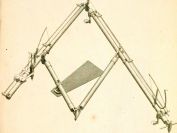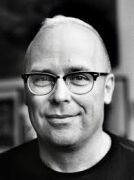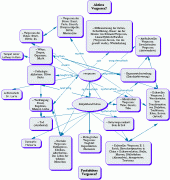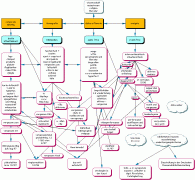The "inclination" group forgetting was established in the beginning of 1996 and since then convenes rather regularly. We have tried to approach the topic in many different ways. Our initial working method was not geared towards specific projects or events, we rather tried to focus on the research of basic concepts. Soon we started to concentrate our discussions more in the direction of the active and productive aspects of forgetting.
From this discursive process a pool of various artistic and scientific projects and experimental designs emerged. This pool of projects povides us with the possibility to integrate forgetting on various levels either into already existing events or into those which have been especially conceptualized for the purpose: e.g. exhibitions, presentations, performances, screenings, discussions, radioprograms and various other products.
At this moment approximately 30 people are working for this projectpool. They are coming from a rich array of working perspectives. Additional experts may be invited to join, depending the perspective and requirements of the various events.
The timeframe of the entire project is laid out for the span of several years. The first year and a half were used for preparation and clarification of the field of action and for the development of the strategies with which to proceed.
Herwig Turk
paradox
The project is the attempt to cope with a phenomenon, which seems inaccessable to known methods of epistemology. we cannot easily discuss it, or label it and it can hardly be described.
we try to pace it out, to find borders by which it may be defined. Thus the project turns into a witch hunt, where the hunters coming from different directions, drive the paradox into a corner, never doubting that the outcome of the hunt is bound to fail. Thus our technique is& opposed to a scientific procedure, which tries to guarantee feasibility and validation while still occupied with defining the problem. we are collecting information, we are collecting experiences, for us every failure is as valuable as a successful outcome.
Forgetting cannot be brought into line, it defies one dimensional interpretation. forgetting is undogmatic. there seem to be discontinuities on all levels.
The project is the attempt to actively embrace one aspect of life which is almost totally ignored by our usual machines of knowledge. forgetting has only been mentioned in relation to diseases, mistakes, troubles of all kinds. we forget history.
Is there a pattern behind it? a system? is it possible to talk about it, is it possible to work with it, is it possible to become aware of it? Do we want to know more about forgetting? is it even possible to know more about forgetting? we are working on projects dealing with various aspects of forgetting and its limitations, projects which should move forgetting into the realm of our experience, that we might better see and hear it. we are staging situations and producing objects which are supposed to hint at forgetting. we are looking at our everyday surroundings with the concept of forgetting on our minds. how to perceive forgetting? which experiences are transparent enough?
We want to develop an image for forgetting which is more positive than the pathological one. We refuse to accept that only those aspects of life can be perceived, which can be formulated, defined, made instrumental. we refuse to accept forgetting as an appendix to remembering.
in politics there is constantly the demand to find a solution, to fight for the right cause, to do the right thing, to think in a right way. but forgetting cannot be brought into line, it can neither be adjusted with one definite direction nor with another.
We want to sell forgetting to society, we want to sell forgetting in the form of suppositories, lighters, posters. to start a business with forgetting helps the project to secure relevance for itself.
patterns sets discussions events quotations misunderstanding models, we want to collect, to generate and to form knowledge. there is no political conclusion. there is no conclusion at all, because the field is open, there are possible transgressions and passways on various levels and in various directions.
Nobody can claim, foster or prevent forgetting. it is possible to gear attention to various aspects. that is about all.
Forgetting is not pathological, it is not a mistake and not a handicap. forgetting is a part of everybody's everydaylife which is crucial for survival.
herwig turk, 1997
Herwig Turk lives and works in Vienna. His projects probe the interconnectivity of the fields of art, technology and science. From 2010 to 2013, he has been artist in residence at the Instituto da Medicina Molecular (IMM), Lisbon. From 2003 to 2009, Turk worked together with Paulo Pereira, head of the Department of Ophthalmology at IBILI (Institute for Biomedical Imaging and Life Sciences) at the University of Coimbra. In recent years, his work has been shown at venues such as the Museum of Applied Arts, Vienna, the Carinthian Museum of Modern Art (MMKK), Klagenfurt, the Seoul Museum of Art, the Neues Museum Weserburg in Bremen, the Media Art Laboratory TESLA, the Galerie Georg Kargl in Vienna and the Transmediale in Berlin, to mention only these. Since 2014 he works as Senior Artist at the department Social Design at the University of Applied Arts Vienna.



